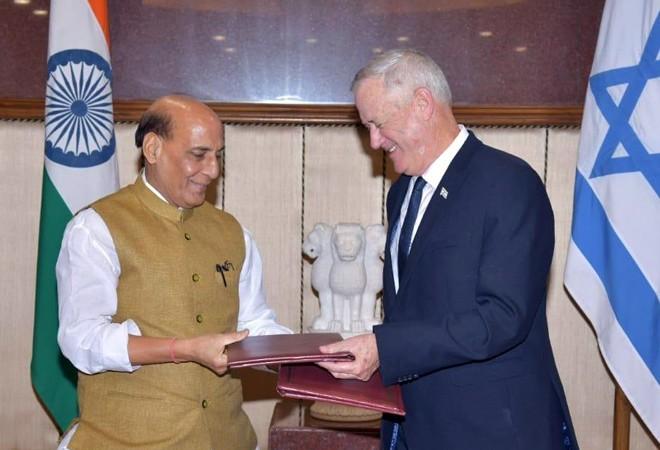As India aspires to become a global semiconductor hub, Israel can be a model to follow and a partner to work with
Recent reports of the Indian government likely to approve an INR 25,000 crore scheme for spurring semiconductor manufacturing in addition to the existing INR 76,000 crore production-linked incentive (PLI) scheme are important steps towards making India a semiconductor hub. This additional funding will support commercial entities engaged in various aspects of semiconductor manufacturing, such as fabs, display fabs, compound semiconductors/silicon photonics/sensors fabs, semiconductor packaging, and designing. As it expands its ambitions in this strategic sector, India is mobilising support from like-minded partners. With its technical expertise, Israel can potentially become India’s key partner. Tel Aviv’s technological determinism driven by innovation and its conducive startup environment has contributed significantly to its recognition as a ‘Startup Nation’ and the Silicon Valley or Silicon Wadi (valley in Hebrew) of West Asia. While its role is negligible in the foundry segment of the supply chain, Israel has made enormous strides in the research and designing of chips to establish its growing role in the global semiconductor industry. This article delves into Israel’s semiconductor prowess and explores how existing frameworks on technology cooperation between New Delhi and Tel Aviv can open the avenue for joint effort in chip manufacturing.
Intel’s pioneering tech revolution fueled domestic startups in the fab and fabless supply chain segments.
Israel’s strides in the semiconductor industry
The story of Israel’s semiconductor journey began in the 1970s, when in 1963, Charlie Sporck, an American engineer, during his stint at Fairchild Semiconductor, a company formed by semiconductor stalwarts Bob Noyce and Gordon Moore, initiated the process of offshoring the assembly of semiconductor chips to Hong Kong. Within a decade, almost all United States (US) chip makers had undertaken offshoring. This phenomenon put East Asia and Southeast Asia on the global semiconductor map, benefiting Israel from the offshoring of allied research and development (R&D) centres. Intel Corporation was the first to set up its R&D centre at Haifa in 1974, followed by Texas Instruments, Advanced Micro Devices, National Semiconductor, Broadcom, Qualcomm, and many other US chip companies. Over the years, renowned semiconductor companies from Japan, South Korea, and China followed suit. Israel’s tumultuous history and the ever-widening security challenges arising from a hostile neighbourhood did not stop its march in the semiconductor R&D. Intel’s pioneering tech revolution fueled domestic startups in the fab and fabless supply chain segments. Israeli startups successfully complemented the existing foreign chip companies, leading to the merger and acquisition (M&A) of some of them. Some significant M&As are as follows: Table 1: M&As in the Israeli semiconductor industry
| Major Semiconductor Company | Israeli Semiconductor Startup | M&A deal Value (in US$) |
| Intel | Mobileye | 15.3 billion |
| Intel | Tower Semiconductor | 5.4 billion |
| Nvidia | Mellanox Technology Ltd. | 6.9 billion |
| KLA-Tencor | Orbotech | 3.4 billion |
| Intel | Habana Labs | 2 billion |
| Amazon | Annapurna Labs | 350 million |
| Sony | Altair Semiconductors | 212 million |
Source: Data compiled by the author Intel’s famed microprocessor 8088, incorporated into IBM Personal Computer (PC), the first PC to use Microsoft’s Disk Operating System, was born in Israel. This success for Intel and Microsoft eventually spawned Windows-based computing. For Intel, Israel has been the most profitable investment, with the company’s Israel arm designing subsequent microchip processors like Pentium MMX, Banias, Marom, Yonah, Centrino, Sandy Bridge, Ivy Bridge, Alder Lake and most recently, Raptor Lake. Israel’s tech lead extends to chip manufacturing and exports part of the supply chain despite not having a large domestic market. Having the first-mover advantage, Intel took the lead by setting up fabrication plants at Jerusalem and Kiryat Gat, near Tel Aviv. Its semiconductor industry generated about $19.8 billion in revenue in 2020 and is projected to reach $41.6 billion by the year 2025. The trend towards self-reliance and the imperative of reducing dependence on traditional foundries in East Asia have funnelled significant investments by Western companies that are majorly active in R&D into fabrication plants in Israel. For instance, Intel is investing US$10 billion to expand its Fab 28 unit at Kiryat Gat while constructing another facility, Fab 38, at the same location to cement its position in the foundry business, with a fresh investment worth US$25 billion, its largest single investment in Israel. Intel has also acquired Tower Semiconductors, an Israeli company in the foundry segment of the semiconductor industry with two operational fabs, to ramp up its chip manufacturing capabilities.
The trend towards self-reliance and the imperative of reducing dependence on traditional foundries in East Asia have funnelled significant investments by Western companies that are majorly active in R&D into fabrication plants in Israel.
The domestic semiconductor industry has also contributed to modernising the Israeli Defense Forces, with SemiConductor Devices (SCD) developing chips to enhance infrared night vision and also integrating the chips into Israel’s high-tech Iron Dome missile defence system. The Israeli success model is attributed to investments in human capital, creating a pool of talented scientists and engineers, and fostering innovative disruptions.
Opportunity for India
The increasingly challenging and complex geopolitical and geo-economic environment, where the United States has adopted export control regimes to block the crucial chip technology to China and the ascending Chinese belligerence vis-à-vis Taiwan, brings to light the vulnerabilities of established hyper-specialised supply chains. Export controls on China by the West and the ‘China+1’ strategy adopted by businesses provide India with a window of opportunity to rekindle its semiconductor industry. As India aspires to become a global semiconductor hub, Israel can be a model to follow and a partner to work with. Science and Technology (S&T) form the bedrock of bilateral cooperation between New Delhi and Tel Aviv. The India-Israel Joint Committee on S&T came into being after signing the S&T Cooperation Agreement in 1993, a year after establishing full diplomatic relations. The synergies achieved in defence cooperation can also reflect in the commercial avenues of semiconductor manufacturing. Over the years, India and Israel have signed Memorandum of Understandings (MoUs) to enhance technology, innovation and industrial research cooperation. The 2017 India-Israel Industrial R&D and Innovation Fund, followed by the 2020 bilateral programme signed between Startup Nation Central and India’s International Center for Entrepreneurship and Technology or iCreate, are steps to accelerate innovation and technology cooperation. Building on these existing frameworks, India’s Council of Scientific and Industrial Research and Israel’s Directorate of Defense Research and Development inked an MoU in May 2023 for research collaboration in high technology, including semiconductors.
The International Semiconductor Consortium, a joint venture by Tower Semiconductors and Abu Dhabi-based Next Orbit Ventures, has announced investments worth US$3 billion to set up a fab at Mysuru to manufacture 65-nanometre analogue chips.
Semiconductor R&D could be a focus area for collaboration considering the complementary strengths of both partners—while Israel has shown its mettle in R&D, one-fifth of the world’s semiconductor designers are from India. Additionally, unlike Israel, India has a sizeable electronics manufacturing market, expected to touch US$300 billion by 2026. These complementaries provide the semiconductor industry with a vast domestic consumer base. India’s chip market is set to expand to US$110 billion by 2030, accounting for 10 percent of the global market. Both countries have initiated some nascent steps toward this end. For instance, the International Semiconductor Consortium, a joint venture by Tower Semiconductors and Abu Dhabi-based Next Orbit Ventures, has announced investments worth US$3 billion to set up a fab at Mysuru to manufacture 65-nanometre analogue chips. With the acquisition of Tower Semiconductors, this investment provides Intel with a gateway into Indian semiconductor manufacturing.
Recalibrating supply chains
India-Israel cooperation through the I2U2 (India, Israel, the United Arab Emirates (UAE) and the United States) has set the stage for reigniting multilateralism for resilient supply chains of emerging and critical technologies. The ongoing negotiations for a Free Trade Agreement also augur closer cooperation on semiconductor manufacturing. After successfully collaborating on co-developing the high-tech Barak-8 missile defence system and working on agro-tech, the untapped potential of semiconductor manufacturing can enhance and upgrade the New Delhi-Tel Aviv strategic partnership to sail through the increasingly choppy waters of instability amidst changing geopolitical dynamics.
Shourya Gori is a Security Studies Programme Intern at ORF Mumbai.









